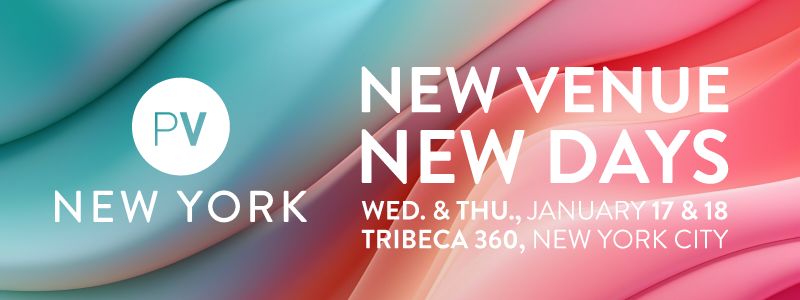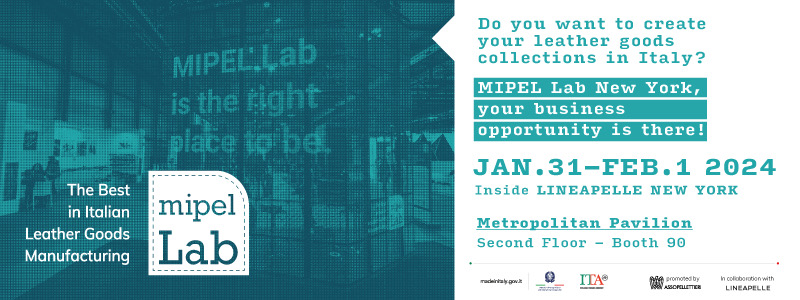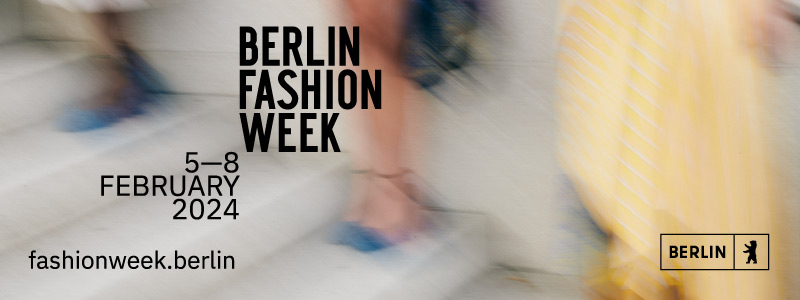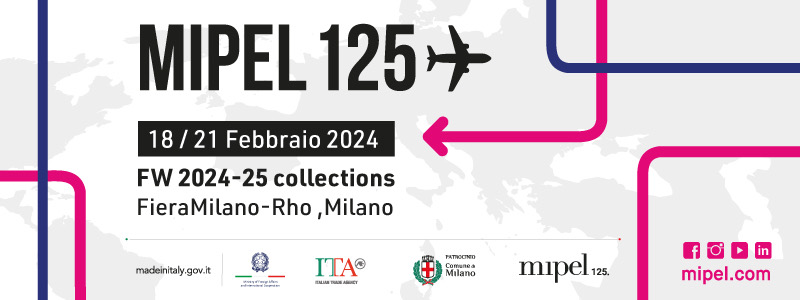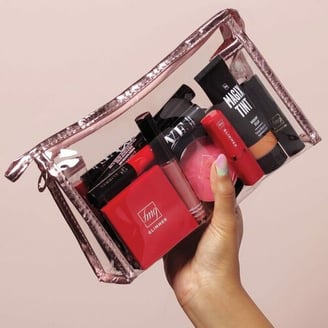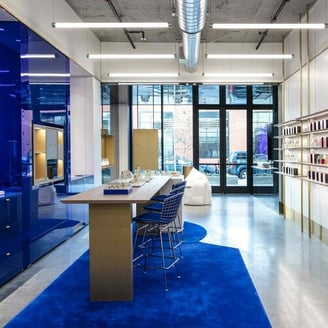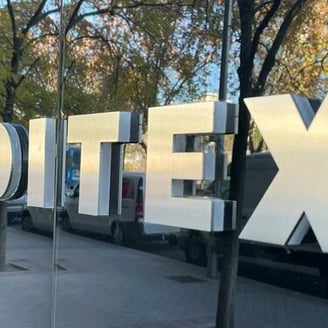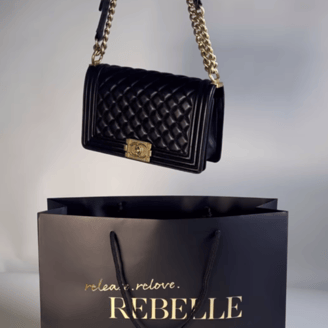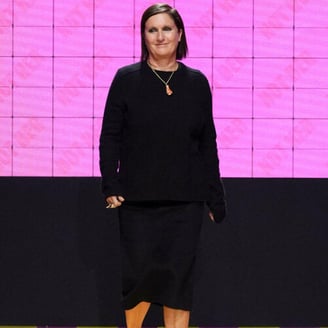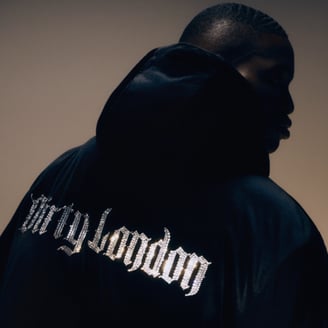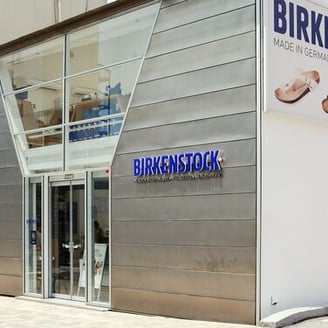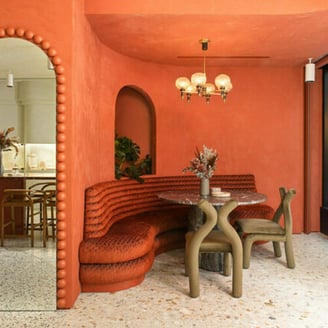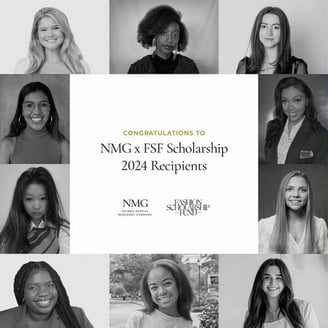Dec 8, 2023
A bullish Bruno Pavlovsky on a beautiful 2023, taking Chanel to Manchester and maintaining Métiers d’Art
Dec 8, 2023
In an unexpected move, Chanel took its latest collection of Métiers d’Art to Manchester this week, harnessing the gritty energy of the city in a great show.

All week, the house staged events around the city: hosting a dinner catered by Daniel de la Falaise, the hipster fashion aristocrat chef, inside the Salford Lads Club, a redbrick boxing club on Wednesday, the night the show, attended by ambassadors like Kirsten Stewart and Tilda Swinton. Coco visited the region regularly, as the girlfriend of the Duke of Westminster. His family home Eaton Hall is located nearby in Cheshire, site of the market garden of Higher Ground, a happening Manchester bistro where Chanel’s guests enjoyed a brilliant lunch of cuttlefish ink-cured pork loin, Cumbrian goat curd and sprout tops with charcoal butter.
Meanwhile on Friday, it debuted a striking new exhibition Manchester, Past, Present, Future created by veteran editors Charlotte Stockdale and Katie Lyall. An artful compendium of cool and crackling Manchester culled from a special Chanel-sponsored issue of their glossy fashion fanzine Chaos 69.
Post-show, guests – stars, VICs, editors and the merely very beautiful – partied in the Victoria Baths, with an epic concert by Primal Scream inside the disused swimming pool. It was a soirée catered by happening chef Tom Barnes, who whipped up a delicious take on the UK classic fisherman’s pie.
However, the key action was the latest show of Métiers d’Art, a unique collection created two decades ago to highlight the rare artisans that the Chanel group has gradually acquired in a holding known as Paraffection.
Riffing on British references from wraparound skirts, tweed suits, Shetland knits, baby doll dresses and baker boys' caps, though blended with rare French artisanal skills – jewelled buttons, embroidery and feathers sewn into appliqués of teapots, vinyl records and Pop Art flowers. Before an audience of 600, it was Chanel designer Virginie Viard’s coolest collection for the house in her half-decade-long reign, since succeeding Karl Lagerfeld.
Privately-owned Chanel does not break out its sales figures, but annual revenues are approaching €20 billion.
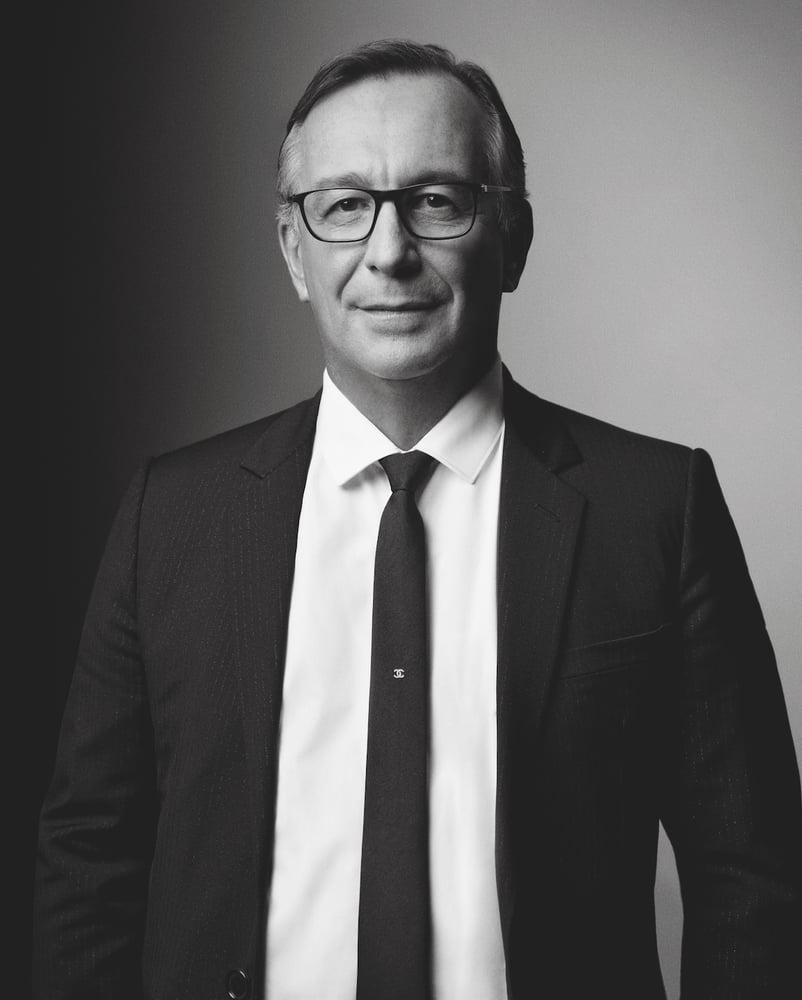
So, we sat down with Chanel Fashion President Bruno Pavlovsky, and the man who also oversaw the creation of Paraffection, inside the show’s backstage – the Bay Horse Tavern on Thomas Street.
Fashion Network: Why are we in Manchester?
Bruno Pavlovsky: Virginie really wanted to come to England for many reasons – culture, music and inspiration. But not go to London as we have done that enough. We wanted a city that represents England – its energy, music and ideas mixed up with creativity, so here we are in Manchester.
To my mind, there is a discrepancy between how many people see Chanel and the way it is perceived in a dynamic city like Manchester, a birthplace of the industrial revolution blessed with beautiful energy.
Virginie wanted to look for inspiration and connect to the modern energy, art scene and music here. And Thomas Street incarnated part of that history, a cotton street once famed for its fabrics, and today fashion shops, pubs and tattoo bars.
FN: Why is it important that the Métiers d’Arts shows travel so much?
BP: Well, we could easily remain in France, but we like to follow the ideas of Virginie and this season it’s Manchester. Last year, she wanted to go to Africa. And after considering that, we realized Dakar was the right choice. It’s important to travel in general, even if we have seen some great Métiers d’Art shows in Paris. Travel makes you breathe in another culture, like in Dakar or Manchester, which is great for a French brand like Chanel.
Which is also what we wanted to achieve with this issue of Chaos. The discovery of many layers in a city and culture. What Manchester means and stands for, in an expo in Victoria Baths that shows why Chanel is so interested in MCR.
FN: How has the approach varied from Karl to Virginie?
BP: To my mind, Karl and Virginie are very different. Virginie tries to choose a new screen for each collaboration, even as her ideas nurture and nourish the codes of the brand. I should also say there have never been so many clients coming into our boutique. Virginie is bringing her own touch to each collection – freer and more fluid, even if I don’t really like to compare her and Karl.
FN: Has the age of your clients become younger with Virginie?
BP: I don’t like to reduce the discussion to that. We have a very wide range of clients, even if we find in all cases there is a younger clientele coming into our boutiques and discovering the brand. Not because her ideas and designs are simpler, often they want what’s more sophisticated. So, I never really look at the idea of age. I think it blocks your view – Chanel is a very large idea in terms of style, silhouette and expression.
FN: What were the first two companies acquired by Paraffection, and why?
BP: Desrues for buttons and Lesage for embroidery – and then we quickly added Lemarie and Maison Michel. Cher Monsieur Desrues died of a heart attack and we had to buy the business quite promptly. It was our only source of buttons – and still makes majority of our buttons, and for many other great marques.
When we created 19M, we did not forget that these houses always worked with lots of clients -- that was their business model. They had to, as certain brands didn’t have the same success at the same time. So, we naturally accepted that element in their business model. Our role is to rid these houses of all administrative problems so that they can concentrate on creation. It’s not the case that we keep the best for Chanel – since what we ask them for is very different than other houses. That helps guarantee their perennity.
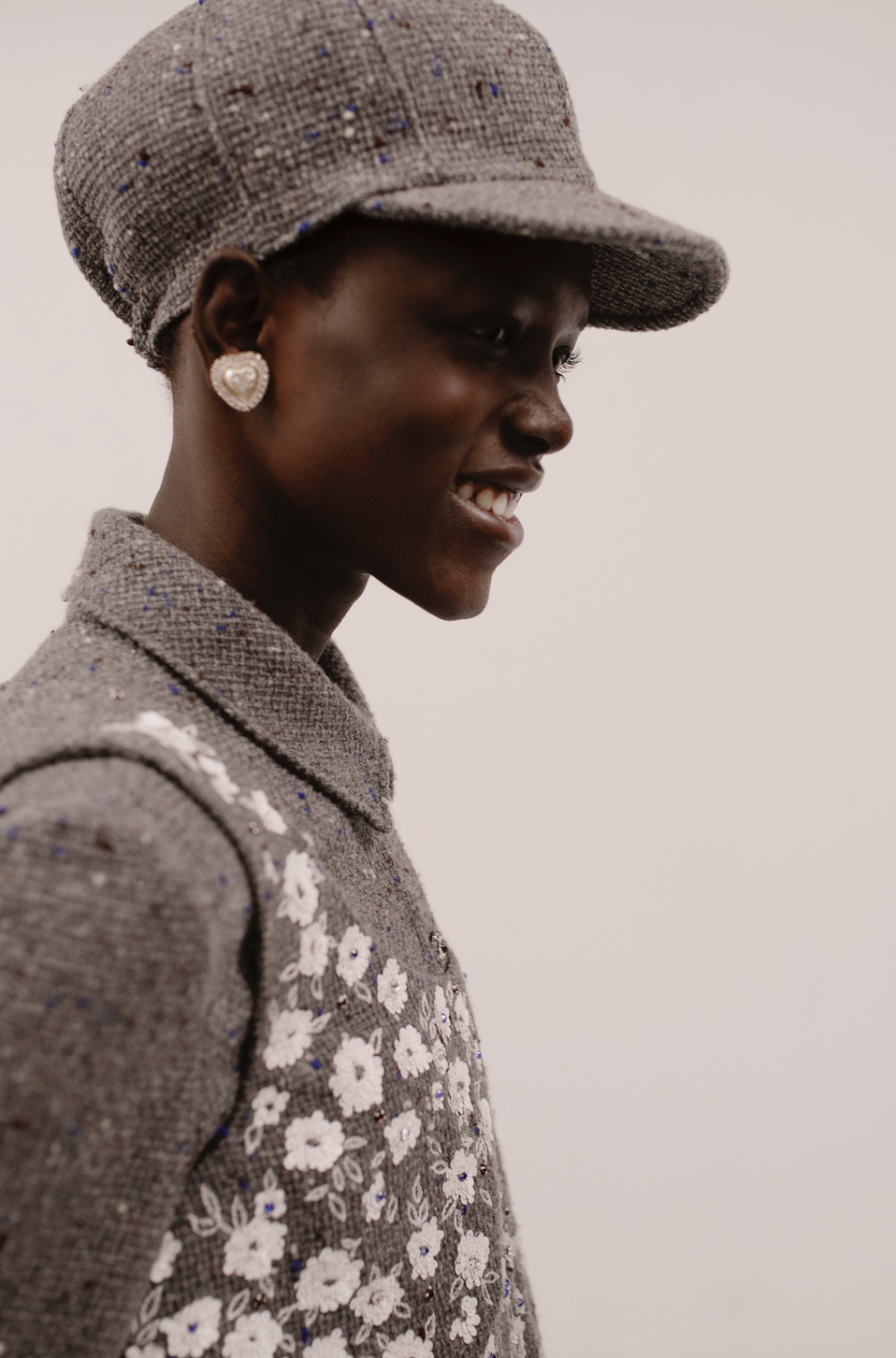
FN: What sort of year is Chanel having?
BP: 2023 will be a beautiful year; double-digit growth. But the bigger question is that since September we are still growing steadily even as major economies are slowing down. During Covid, Chanel clients could not spend money, especially for travel – but they have since returned to our boutiques in large numbers. 2024 will be calmer – there will be a slowdown, but I stress not a fall. But overall, the perspectives for luxury are still very good. I see a future where lots of entrepreneurs will make a lot of money and they will want to spend it. The fracture in society between very rich and the mass of people will continue. And those at the top will naturally turn to top-quality products with a real history. Plus, the great force of Chanel is that we also have a very wide base in perfume, cosmetics, accessories and shoes and we want to maintain that even if that’s tricky now.
FN: What are you planning in terms of store openings?
We are continually augmenting the quality and pertinence of our network in over 50 countries to create the best possible shopping experience. We might open one or two flagships per year, but not much more. In Shanghai, for instance, we have three boutiques – while other competitors have far more.
In Paris or in Hong Kong it’s more about the idea of improving our importance in each town. The simple fact is we need larger boutiques. If before, our stores were between 500 to 600 square-meters, now we need twice that. And that is easier in Asia – as malls are getting bigger. Whereas on avenue Montaigne and rue Cambon it is far harder to do.
We also have Chanel et Moi – a service program that was in existence before but is now more visible. Like when a client brings us a product that has a problem. And we render that easier – with a 40 square-meter space in each boutique for diagnostic discussion, discreet, calm and intimate. Since stores are often very busy.
FN: On the web, Chanel only sells scents and cosmetics, why not at least accessories?
BP: Why change? Yes, e-commerce is great, but our client is already connected to our boutiques. The web cannot offer a beautiful experience, except maybe yes for scent and cosmetics. I feel our clients are attached to our boutiques and that relationship – to discover beautiful products with first-rate service. That relationship is central, and I think about it all the time.
FN: What are the secrets to guaranteeing Chanel remains a successful luxury fashion brand?
BP: Investing in products and savoir faire, and the best raw materials, and nourishing creativity and inspiration. And always offering products that have real value – that is my priority.
FN: Many of your campaigns are shot by Inez & Vinoodh, why is there such a strong affinity for their work?
FN: They have a great complicity with Virginie. They understand what she wants and her ideas. Plus, they have great talent, and they get what she wants in terms of projecting her image of Chanel.
Copyright © 2024 FashionNetwork.com All rights reserved.



